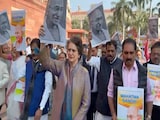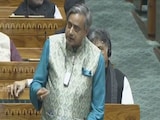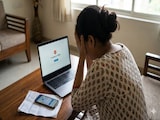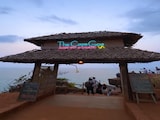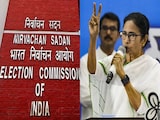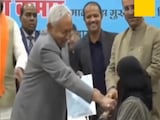The plans of a section of Jawaharlal Nehru University students to screen a BBC documentary on Prime Minister Narendra Modi this evening ran into trouble as both internet and electricity went out in the Students' Union office. Students watched the documentary on their cellphones and laptops and the evening ended with a protest march by the Students Union.
The screening of the documentary was set to begin at 9 pm and the students had planned to go ahead with it despite the disapproval of the administration. The JNU administration had refused to give permission for the screening, which India has blocked from online sharing. The university administration had even declared that disciplinary action will be taken if the documentary is screened.
But the students insisted that the screening would not violate any rule of the university, nor would it spoil communal harmony. After the blackout late this evening, they trooped into a cafeteria inside the campus, where they watched the documentary on their cellphones and laptops.
While the students were watching the documentary, some stones were thrown at them from behind the bushes. Later, members of the JNU Students' Union held a protest march, shouting slogans against the BJP and the ABVP -- the students' wing of the BJP's ideological mentor Rashtriya Swayamsevak Sangh.
Ayeshi Ghosh, president of the Left-backed Students' Federation of India, alleged that the administration was responsible for the blackout.
"The administration has cut the internet and power in order to stifle the voice of democracy. However, we will not stop and watch the documentary with the help of mobile phones using QR codes," she told NDTV. The JNU administration was not available for comment.
Last week, sources said the government had asked Twitter and YouTube to remove the controversial BBC series on PM Modi, which claims to have investigated certain aspects of the 2002 Gujarat riots when he was the Chief Minister of the state.
In a sharp takedown of the BBC, the Centre had called it a "propaganda piece designed to push a particular discredited narrative". "The bias and lack of objectivity and frankly continuing colonial mindset are blatantly visible," the foreign ministry has said.
Slamming the government over the "censorship", several opposition leaders had tweeted alternative links where the first of the two-part series could be watched. "Shame that the emperor & courtiers of the world's largest democracy are so insecure (sic)," tweeted Trinamool Congress's Mohua Moitra.
Earlier today, a student group in Hyderabad University screened the documentary. The university authorities have asked its officials to submit a report on the matter.

